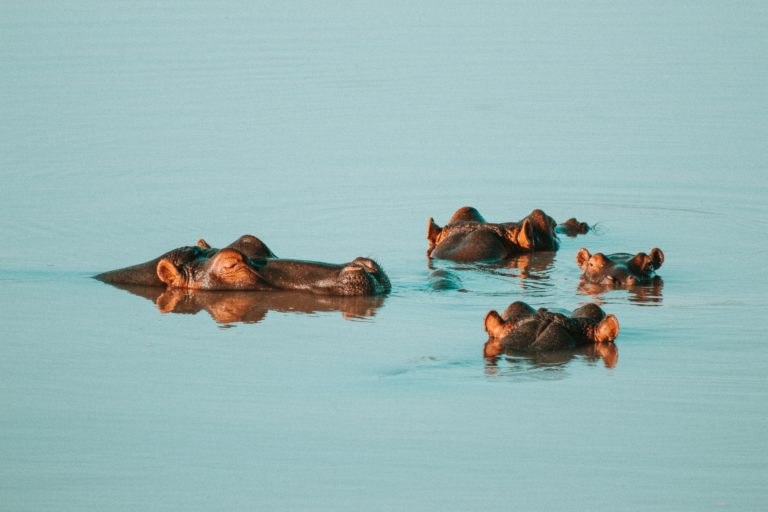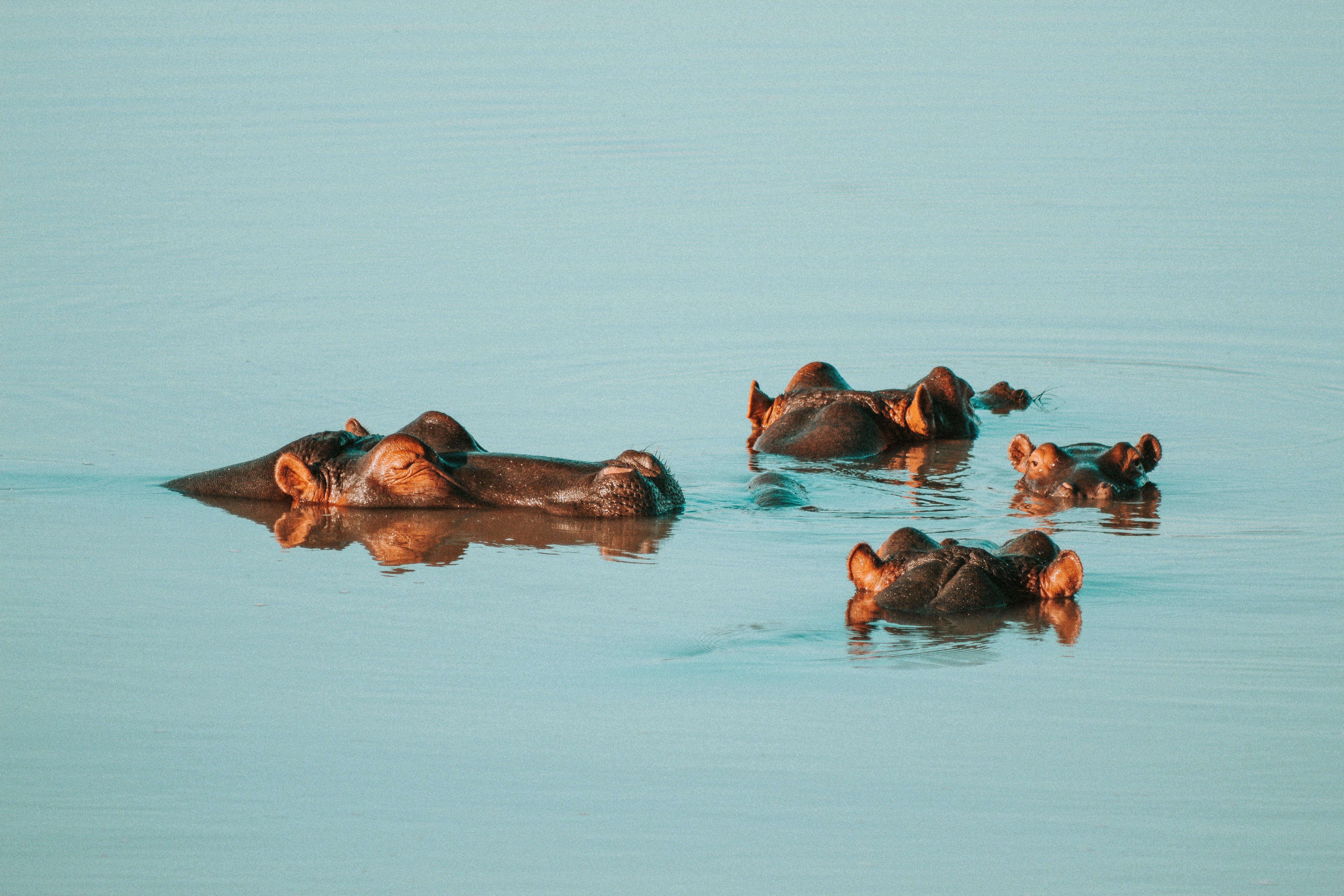The Hippopotamus: What this animal is doing for Africa’s Lake Victoria and why it’s important
By: ajcarapella

By Georgia Lambrakis, Waterkeeper Alliance intern
Lake Victoria is one of nine African Great Lakes. With bustling wildlife and unique species, it is one of the most ecologically diverse places on earth. The wetland species include the Sitatunga antelope, the vervet monkey, the spotted-necked otter, and the hippopotamus, which all reside in or around the waters. Despite its natural beauty and species abundance, this African Great Lake, which serves a population of about 30 million and covers 26,828 square miles, is under increasing threat due to the poaching industry exploiting these animals for economic gain.
Leonard Akwany, the Kenya Lake Victoria Waterkeeper, has experienced first hand the devastation that poaching can have on the community as well as the ecosystem services that these critical species offer to citizens. Leonard recognizes the importance of species conservation and how it directly correlates with an ecosystem’s water quality and food web. Among other efforts to ensure Lake Victoria is not overrun by industrialization and mass amounts of pollution, Leonard has made large strides in protecting Lake Victoria’s critical species.
Focusing primarily on Dunga Swamp and Yala Wetland, Leonard is inspiring locals and forging strong ties with important companies to develop sustainable alternative livelihoods to poaching. He has also created what he calls wetland scouts. These advocates, made up of the wetlands’ fishermen and farmers, aid in the efforts of Kenya Lake Victoria Waterkeeper to protect water quality and prevent human-wildlife conflicts. Leonard works with them closely to restore the wetlands, monitor and report poaching, and help rescue animals.
Another one of Akwany’s accomplishments involves working closely with the local government to rectify issues. “The wildlife in Kenya is under the custody of the Kenya Wildlife Service,” said Akwany. “So we are in partnership with them. Our scouts are constantly liasoning with Kenya Wildlife Service. They have officers in areas all around and are who we call to help us release animals back into the wild.”
Leonard’s ties with Kenya Wildlife Services focus on one animal, in particular, the hippopotamus, which has suffered a rapid decline in Africa because of its valuable ivory-like teeth. “For hippos, the other main problem is the human-wildlife conflict,” said Akwany. “People have encroached into hippopotamus habitats so we find lots of conflict and killings arising from this issue.”
Hippopotamus poaching is linked heavily to hypoxia, inadequate oxygen levels, in parts of the Mara river—a tributary of Lake Victoria— leading to large impacts on the entire food web. Despite the wide variety of species on Earth, a common tie between many is their interconnection to the modern food web, making each animal vital for another’s survival. Surprisingly, for the hippopotamus their food web interrelation comes from an unlikely helper, their poop, which makes hippopotamus very important!
Although strange and slightly hard to picture, hippopotamus poop helps hold the food web of Lake Victoria together. When hippos eat the grasses that surround the Mara River, they ingest about 55 pounds of the compound silica per day. About half of their bowel movements end up in the water. This silica-rich water eventually ends up downstream in Lake Victoria where it allows diatoms to flourish. The diatoms are responsible for sucking carbon dioxide out of the air and forming the base of the food chain. If hippos are poached and killed, the entire food web would be altered. Levels of nitrogen and phosphorus would fall out of balance compared with silica, which could make suffocating cyanobacteria blooms more common. These bacteria blooms use up the sunlight and oxygen in the lake, making it hypoxic, suffocating the living plants just underneath the water and leading to death of wildlife. Although under certain environmental conditions hippo waste can cause net fish deaths, it is generally agreed that the silica from hippos is an important factor of Lake Victoria’s water quality.
What might seem like solely a poaching issue has an effect on an entire food web that Leonard and others work to protect. To address this issue, Kenya Lake Victoria Waterkeeper is engaged in awareness and conservation education. “We are doing this in many ways. We are doing it through videos. We are doing it through puppetry, and drama. But we are also doing it through giving talks. We have been training the communities on alternatives and involving those poachers into our meetings, training them and creating awareness,” says Akwany proudly.
Leonard’s work with the Kenya Wildlife Services to protect hippos goes far beyond just one species. His work affects the entire food web and has an impact on the conservation of not just wildlife, but also Lake Victoria water quality.
